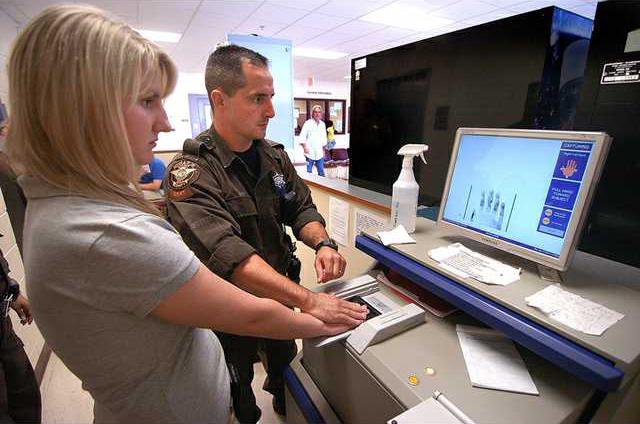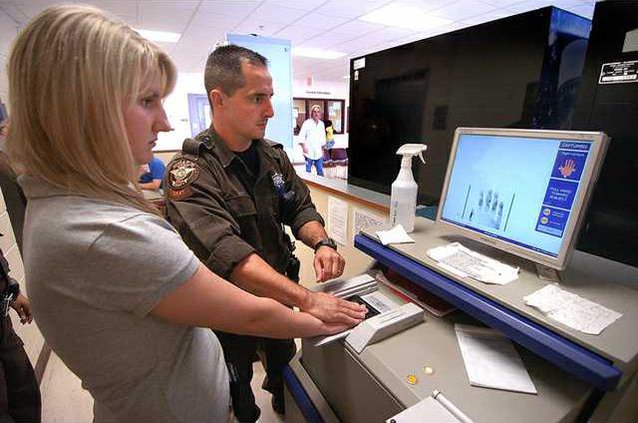The lines in the palm of a hand aren’t just for fortune-telling.
In the world of forensic science, latent palm prints can be more reliable in placing a suspect at a crime scene than their more familiar cousins, the fingerprints.
A new upgrade installed this month at the Hall County jail allows officials to electronically scan and store every palm print of every person booked in, plus those who have their prints made by the sheriff’s office for various permit applications.
In a year’s time, there should be more than 10,000 palm prints in the local database, with more added every day.
“This will greatly enhance our investigative abilities,” Col. Jeff Strickland said.
The automated fingerprint system upgrade at the jail and in the sheriff’s criminal investigation division cost $70,000 and was paid for through drug dealer forfeiture funds.
Hall County Sheriff’s Crime Scene Investigator Cameron Durham estimates that 30 to 40 percent of all latent prints collected at the scenes of burglaries, break-ins and other crimes are in the form of palm prints.
In general, palm prints tend to be of better quality than fingerprints because the movement of fingers leads to more smudging, while palms braced against doors or windows tend to stay more static and leave better latent images.
Palm prints are also better because they’re bigger and have more areas for points of comparison, Durham said.
Until now, local investigators usually had to have a solid suspect – and take his or her palm print – to match up a palm print taken from a crime scene.
Now, the AFIX automated fingerprint identification program runs its own computerized matches, comparing unknown prints scanned into the system with images from the database.
In the past month, the sheriff’s office has already compiled a local database of 1,500 palm prints.
“If you have a local database, you have a better chance of matching to a local person,” Durham said. And local criminals tend to commit the majority of local crimes.
The system will also tie into the Gainesville Police Department’s AFIX database, as well as AFIX systems in Forsyth and DeKalb counties.
Officials hope within a few months’ time, the exacting art and science of fingerprint matching will be a lot quicker.
“It’s all done in a matter of seconds,” Capt. Woodrow Tripp said of the computerized comparisons. “We get prints all the time but didn’t have the suspects. The computer’s able to give us those suspects.”

